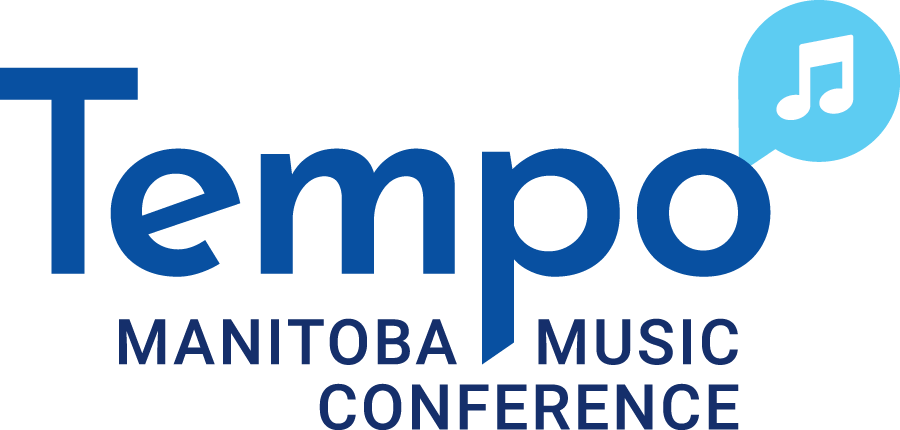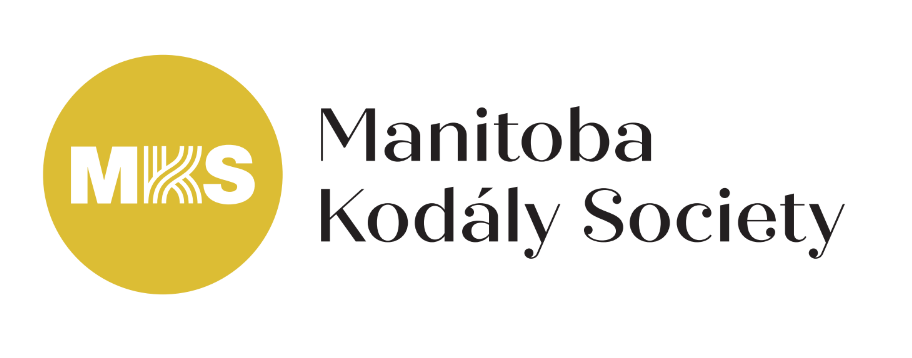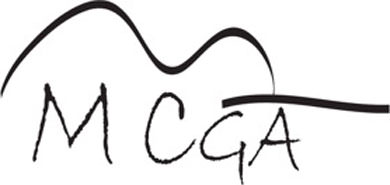TEMPO 2025
Manitoba Music Conference
Sponsored by the Manitoba Music Educators' Association and its affiliates.
Friday, October 24, 2025
Mennonite Brethren Collegiate Institute
173 Talbot, Avenue, Winnipeg
Program
8:40 - 9:50 AM
Session One
-
I Think I'm Terrible, What Now?
Patrick Sheridan
Sponsor:
Location: Band RoomFreaking about Fillmore? Grim about Grainger? Horrified with Holst? Questioning what, how, and why you are teaching? Need to fall in love with music and teaching again? Want to hear your scores in greater detail? Come to this inspirational clinic about intention and focus. Discover pathways to improved musicianship, inspiration, and meaning in your music education career.
Guitar Chords
Andrew Erickson
Sponsor:
Location: TheatreTeaching chords from junior high to high school (including your jazz band guitar players!) Andrew will go through a variety of common chord shapes, modifiers, jazz voicings and approaches to chord theory. Guitars provided (first 30 people)
L'apprentissage musical à travers le folklore francophone
Rachelle Landry and Jody Stark
Sponsor:
Location: LibraryDans cette session, Rachelle et Jody vont partager des modèles et principes pour approfondir les connaissances et les habiletés musicales des élèves de M à 6e années à travers le répertoire traditionnel francophone.
Rachelle and Jody will share activities for use in the K-6 French music context using traditional folk
materials to develop students’ musical understanding and skills.
Flute FUNdamentals: Confident Teaching from the First Note
Stéphanie Superle
Sponsor:
Location: 5100
Teaching flute can feel tricky—but it doesn’t have to! This hands-on session gives you the tools to tackle
embouchure, first notes, tone development, and common classroom challenges. Build your confidence
and leave with practical tips to make teaching flute fun and effective! Don’t forget to bring a flute!
Music as a Guide – Aural Training for the Rhythm Section
Fabio Ragnelli
Sponsor:
Location: 5102
What are the challenges in describing a rhythm, feel, and/or stylistic approach when
working with a rhythm section? Does musical terminology or notation work? Using specific
musical examples as a primary resource helps streamline the process.
The session will cover specific styles and recordings, notated examples, rhythm section ‘dictionary’
, and
authentic sound (the beat).
nêhiyawêwin Songs for Choirs
Sherryl Sewepagaham
Sponsor:
Location: MP Room
Join music educator and composer, Sherryl Sewepagaham, as she shares her nêhiyawêwin (Cree
language) compositions for unison, SA, SSA, and SATB choirs. Participants will be introduced to
Cree-focused vocal pedagogy, resonance, sound production, language, instrumentation, and cultural
elements of music encompassing a resurgent, compositional approach. Please bring a smart device.
Vocal Jazz 101 - Part 1
Jennifer Barnes
Sponsor:
Location: Choir Room
In this session, we’ll cover a broad spectrum of the basics of getting started with a vocal jazz ensemble,
with topics to include repertoire, sound reinforcement, rhythm section, vocal jazz ensemble sound and
style, and rehearsal techniques.
Note: Whether or not you’ve attended “Vocal Jazz 101 - Part 1”
, you’re welcome to attend “Vocal Jazz
101- Continued” at 1:00 p.m
Enriching Students with Military Music - An Opportunity
Joel Lessard
Sponsor:
Location: 3200
Explore the benefits of exposing your students (and yourself!) to a military wind band, military music, and
the military environment. Learn about the many ways students can musically and personally gain
independence, confidence, fulfillment, accountability, adaptability, and much more through involvement in
a military Brass & Reed Band.
Making Music More Accessible - Bringing more students more opportunities
Tricia Howe & Sheila Scott
Sponsor:
Location: 3201
This session will talk about some of the equipment currently available to make musical instruments more
available to learners with physical barriers, including instruments from a more universal design
perspective, and allow attendees some time with the equipment.
Mix it Up! Songs and Games for Brain Breaks, Social Interaction and Fun!
Susan Brumfield
Sponsor:
Location: Blue Gym
Whether it’s singing, playing instruments, reading and writing notation, creating or listening intently, many
skill-based activities in music classes require intense concentration and focus. Incorporating intermittent
“brain breaks” throughout your lessons can provide students with much-needed opportunities to rest,
recharge and refocus their minds and bodies, enhancing their overall experience and enjoyment.
These informal activities help to foster social interaction, reduce stress, provide opportunities for sharing
musical ideas, build rapport and camaraderie, and create an atmosphere of belonging and community
within the classroom. In this session, we will actively explore repertoire with a focus on its musical and
extra musical benefits. We'll learn name games,
"mixers" and other songs and games along with fun
activities designed to get students moving, singing and playing while cultivating a joyful, playful, and
relaxed environment for learning.
10:20-11:30 am
Keynote Address: The Musical Sounds of Reconciliation
Sherryl Sewepagaham
Sponsor:
Location: Jubilee Place
Historically, the music and song traditions of Indigenous Peoples were systematically
silenced—demonized, outlawed, and labeled “immoral” under colonial policies that sought to assimilate
and erase Indigenous identities, cultures, and languages. This erasure led to a profound loss of traditional
song practices and the cultural knowledge they carry. Yet, as The Honourable Steven Lewis Point
(Skowkale First Nation), former Chancellor of UBC, powerfully stated in 2022: “Reconciliation is the song
we sing together.
”
In this TEMPO 2025 Keynote presentation, nêhiyâw (Cree) artist, music educator, and 2024 Vanier
Scholar Sherryl Sewepagaham invites music educators into a transformative journey of cross-cultural
collaboration, reflection, and practice. Grounded in her ongoing research and decades of experience in
K-6 music education, Sherryl explores how collective singing and the integration of Indigenous musical
worldviews can deepen cross-cultural understanding and contribute meaningfully to reconciliation.
Through story, sound, and the sharing of a newly-composed song, participants will be invited to engage
with Indigenous voice and artistry as a path toward inclusive and respectful music education.
-
Description text goes here
-
Description text goes here















